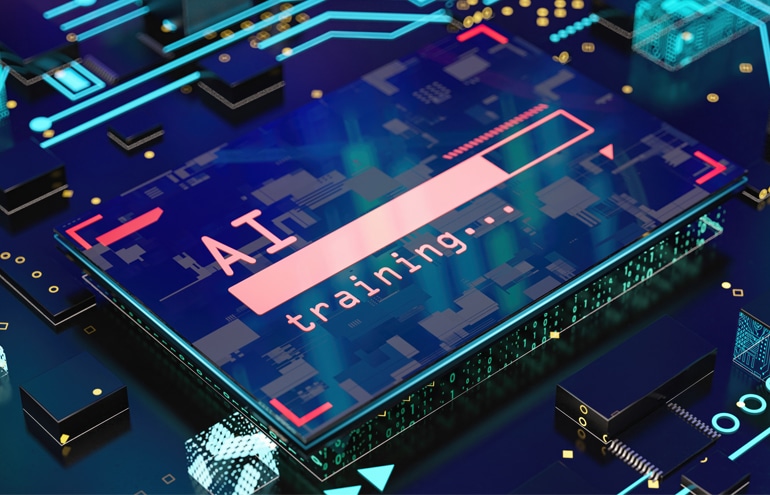If you think knowing something about artificial intelligence is optional for lawyers, think again. A growing number of U.S. law schools have decided that AI training is not a luxury or an elective — it is becoming a requirement. Meanwhile, lawyers continue to face discipline or fines because they lack basic AI competence. The contrast couldn’t be more stark: Students are being taught the rules while practicing lawyers are still struggling to understand them.

Table of contents
Law Students Are Learning AI Ethics, Use and Critique
By the end of 2025, at least eight law schools will have introduced mandatory AI instruction for first-year students, integrating it into orientation, legal research and writing, or offering it as standalone courses. Some schools even conduct prompt-engineering exercises, comparing AI-generated drafts with professor versions to identify hallucinations and biases.
The reasoning is straightforward: AI tools are becoming crucial in legal workflows, including drafting memos, redlining contracts, and supporting legal research. Graduating from law school without understanding your liability for hallucinations, sourcing errors, and prompt risks is like graduating from med school without knowing anatomy.
A professor at Case Western summed it up nicely: Students should treat AI like a “partner,” but one that must be vetted and supervised. Other schools are implementing certification tracks or mandatory modules on AI ethics, use and critique.
Yes, legal academics once worried that teaching AI would weaken core skills. That argument seems to be losing momentum. The new consensus is that students should learn under supervision and not misuse AI on their first day at work.
But Lawyers Are Still Getting Burned Misusing AI
Here are notable instances of misuse.
1. The Colorado Suspension (ChatGPT Citations Gone Wrong)
In People v. Zachariah C. Crabill, a Colorado attorney was disciplined after submitting a motion citing cases he found through ChatGPT — without verifying their accuracy. The citations turned out to be fictitious or false; attorney Crabill didn’t flag the errors or withdraw the motion when he was alerted. Instead, he blamed the mistakes on a legal intern.
The disciplinary order found violations of ethics rules, competence, diligence, truthfulness to the tribunal, and dishonesty, among others. The outcome was a one-year and one-day suspension, with 90 days active, and the remainder stayed pending probation.
Crabill’s case is now frequently cited as a classic example in warnings about why you “don’t trust AI blindly.”
2. The AI Brief Fine (Lindell’s Attorneys)
In another case out of Colorado, this summer a judge fined attorneys representing MyPillow founder Mike Lindell about $3,000 each after they submitted a brief generated — or heavily assisted by — AI that contained numerous errors and fictitious citations. The court deemed it inexcusable: Lawyers have a duty to vet AI results, rather than relying on them blindly.
Between a suspension and a fine, the message is clear: Misuse of AI can lead to serious consequences, beyond just reputational damage.
What AI Competence Means for Practicing Attorneys
They won’t be students forever. One day, those newly AI-trained graduates may join your firm — and point out errors you overlooked. However, beyond internal embarrassment, disciplinary cases reveal that courts and bar regulators are increasingly focusing on lawyer AI competence and paying greater attention to AI-related misconduct.
Here’s what you should do now:
- Treat AI advice like internal memos, not gospel. Always verify sources, check citations and cross-verify.
- Keep thorough records. If you use AI to draft or do research, keep logs, drafts and records of prompts. Audit trails are crucial.
- Integrate AI verification into your workflow. Employ peer reviews and spot checks to identify suspicious claims.
- Educate your team now. Train associates on AI prompt risks, hallucinations, bias and ethics before problems occur.
- Counsel clients thoroughly. If they use AI tools, advise them on the risks of reliance, liability and oversight — and be prepared to draft AI-related terms.
From the Classroom to the Courtoom: Be Proactive About Lawyer AI Competence
The classroom now surpasses the courtroom in AI awareness. Lawyers facing discipline today are being punished for mistakes that the next generation might never make — or at least shouldn’t.
Until that future arrives, it’s your responsibility to be your own AI ethics instructor. Because when the next disciplinary complaint happens, “I thought ChatGPT was right” won’t be a valid excuse for a lack of AI competence.
Michael C. Maschke is President and Chief Executive Officer of Sensei Enterprises, Inc. He is an EnCase Certified Examiner (EnCE), Certified Computer Examiner (CCE #744), AccessData Certified Examiner (ACE), Certified Ethical Hacker (CEH) and a Certified Information Systems Security Professional (CISSP). He is a frequent speaker on IT, cybersecurity and digital forensics, and he has co-authored 14 books published by the American Bar Association. mmaschke@senseient.com.
Sharon D. Nelson is the co-founder of and a consultant to Sensei Enterprises. She is a past president of the Virginia State Bar, the Fairfax Bar Association and the Fairfax Law Foundation. She is a co-author of 18 books published by the ABA. snelson@senseient.com
John W. Simek is the co-founder of and a consultant to Sensei Enterprises. He holds multiple technical certifications and is a nationally known digital forensics expert. He is a co-author of 18 books published by the American Bar Association. jsimek@senseient.com
More About Lawyer AI Competency on Attorney at Work
- 5 Essential Questions Every Lawyer Should Ask Before Using AI Tools
- Should You Be ‘Vibe Lawyering’ with Generative AI? (Listen)
- From Fear to Functionality: How Lawyers Can Ethically Integrate AI into Their Practice
- Richard Susskind on AI for Lawyers: A Review of ‘How to Think About AI’ (Listen)
Subscribe to Attorney at Work
Get really good ideas every day for your law practice: Subscribe to the Daily Dispatch (it’s free). Follow us on Twitter @attnyatwork.
Illustration ©iStockPhoto.com















